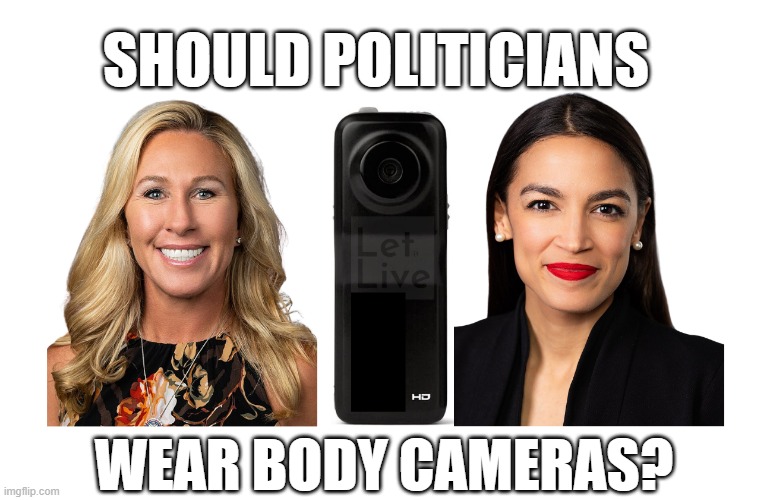A Transparent Future: Why Body Cameras on Congressmen and Senators is Essential for Democracy

In recent years, the public’s trust in government has eroded, and citizens are demanding greater transparency and accountability from their elected officials. As a result, it’s time to consider implementing body cameras and GPS tracking for Congressmen and Senators to ensure that their daily activities, which don’t deal with classified information, become part of the public record. The American people have a right to know how their tax dollars are being spent and how their representatives are conducting themselves. This article will discuss the benefits of such a proposal and address privacy concerns.
Increased Accountability and Transparency
One of the primary benefits of requiring body cameras and GPS tracking for Congressmen and Senators is increased accountability. With this technology in place, constituents will be able to track when their representatives arrive at work, when they leave, and whether they are present for key votes. This information will provide valuable insights into the work ethic and priorities of each elected official.
Moreover, with daily activities on public record, constituents can better understand the issues their representatives are working on and make informed decisions during elections. Additionally, having a clear record of events can protect elected officials from false accusations and help maintain their reputations.
Better Compensation Justifies Increased Scrutiny
It is important to remember that Congressmen and Senators earn an annual salary of $174,000, a figure significantly higher than the average American income. With such compensation, it is reasonable to expect these public servants to be held to a higher standard of accountability and transparency. Body cameras and GPS tracking are a simple way to ensure that these elected officials are working in the best interests of their constituents and the nation as a whole.
Privacy Concerns and Solutions
Naturally, there are privacy concerns associated with implementing body cameras and GPS tracking. However, these concerns can be addressed with built-in privacy features. For example, cameras could be programmed to automatically shut off in restrooms and other private spaces, protecting the personal privacy of elected officials.
Conclusion
Implementing body cameras and GPS tracking for Congressmen and Senators is a crucial step towards increasing transparency and accountability in government. By allowing constituents to monitor the daily activities of their elected officials, we can ensure that they are working diligently on behalf of the American people. Although privacy concerns must be addressed, the benefits of such a system far outweigh any potential drawbacks. It’s time to embrace a transparent future and hold our representatives to the highest standards possible.

Comments are closed